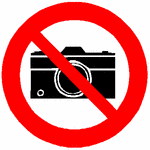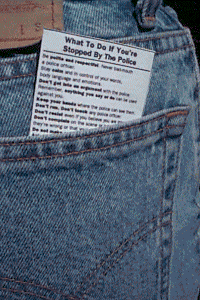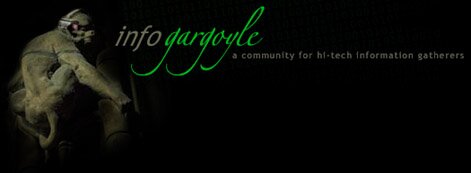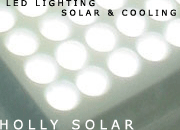ACLU Bust Card for Photographers
 Reader Len Norton wrote in with a great tip in response to the uncamera'd post describing a pdf/palmbook similar to the ACLU's Bust Card but released by Attorney Bert P. Krages. The free document is a quick and well written guide for photographers who want to know where and when they legally can snap their photos.
Reader Len Norton wrote in with a great tip in response to the uncamera'd post describing a pdf/palmbook similar to the ACLU's Bust Card but released by Attorney Bert P. Krages. The free document is a quick and well written guide for photographers who want to know where and when they legally can snap their photos.
From the front page of their distribution site:
"The right to take photographs is now under assault more than ever. People are being stopped, harassed, and even intimidated into handing over their personal property simply because they were taking photographs of subjects that made other people uncomfortable. Recent examples include photographing industrial plants, bridges, and vessels at sea. For the most part, attempts to restrict photography are based on misguided fears about the supposed dangers that unrestricted photography presents to society.
Ironically, unrestricted photography by private citizens has played an integral role in protecting the freedom, security, and well being of all Americans. Photography in the United States has contributed to improvements in civil rights, curbed abusive child labor practices, and provided information important to investigating crimes. These images have not always been pretty and often have offended the sensibilities of governmental and commercial interests who had vested interests in a status quo that was adverse to the majority in our country."
From "The Photographer's Right":
 "Who Is Likely to Violate Your Rights
"Who Is Likely to Violate Your Rights
Most confrontations are started by security guards and employees of organizations who fear photography. The most common reason given is security but often such persons have no articulated reason. Security is rarely a legitimate reason for restricting photography. Taking a photograph is not a terrorist act nor can a business legitimately assert that taking a photograph of a subject in public view infringes on its trade secrets. On occasion, law enforcement officers may object to photography but most understand that people have the right to take photographs and do not interfere with photographers. They do have the right to keep you away from areas where you may impede their activities or endanger safety. However, they do not have the legal right to prohibit you from taking photographs from other locations."
...
"Despite misconceptions to the contrary,
the following subjects can almost always be photographed lawfully
from public places:"
- Accident and fire scenes
- Children
- Celebrities
- Bridges and other infrastructure
- Residential and commercial buildings
- Industrial facilities and public utilities
- Transportation facilities (e.g., airports)
- Superfund sites
- Criminal activities
- Law enforcement officers
Other sections include: "They Have Limited Rights to Bother", Question, or Detain You", "They Have No Right to Confiscate Your Film", "Your Legal Remedies If Harassed", and "How to Handle Confrontations". All of which is on one small reference page that you can fold up and put in your wallet.
Makes me want to print up a bunch for my photography and photojournalist friends.
JWZ and the livejournal crowd have this to say on the subject.
Update: "the whole photographic freedom debate just annoys me...it seems so clear to me :-)" [Rich_Gibson]
[Link thanks Len!]


